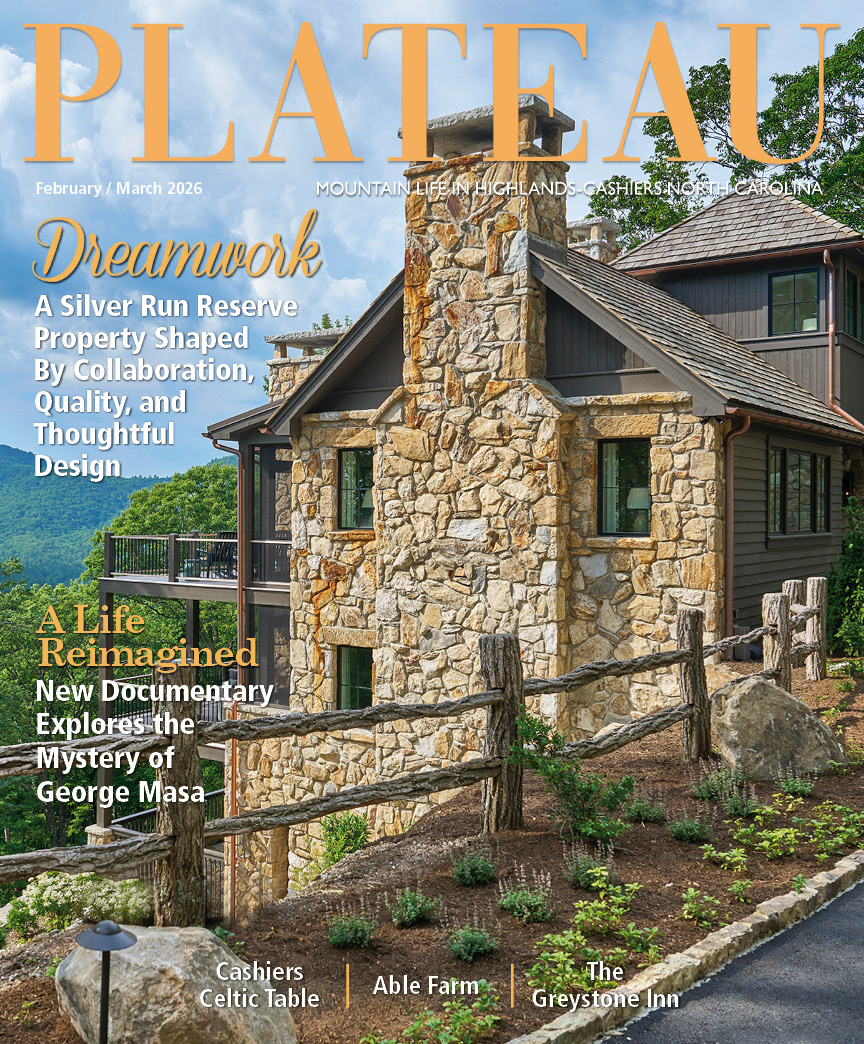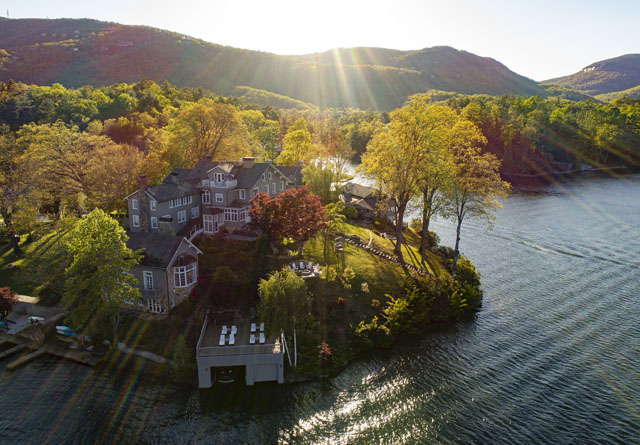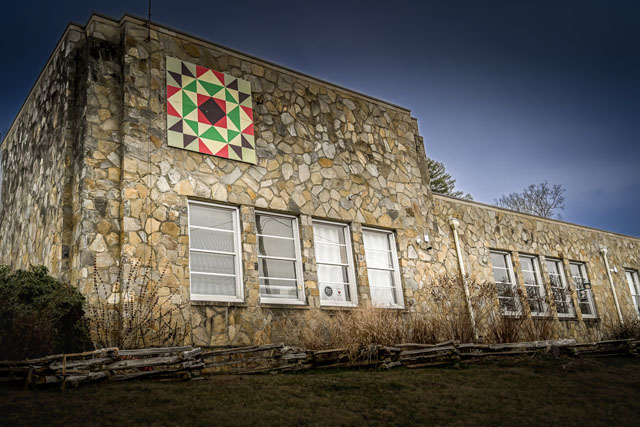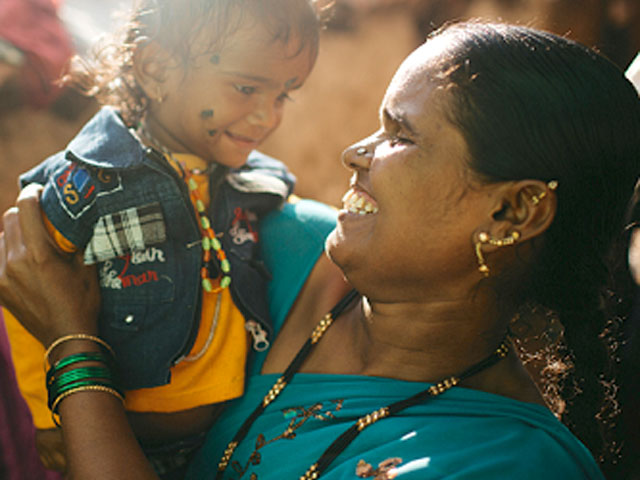The Camp Merrie-Woode Spirit
07 Aug 2020
Empowering girls and young women for over a hundred years
BY Allison Bolt
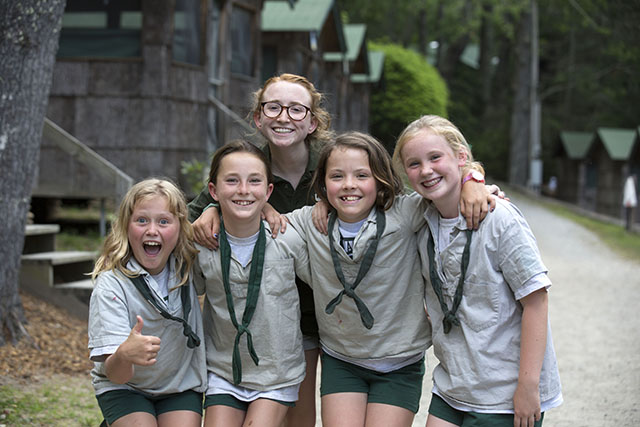
Camp Merrie-Woode in Sapphire, NC has been empowering and inspiring thousands of girls and young women since 1919. Due to COVID-19, this year was the first summer in the camp’s history that the camp did not operate. However, the resilient Camp Merrie-Woode thrived through The Great Depression, World War II and the Polio epidemics of the 1940s. The camp will reopen safely next year and continue to offer a supportive and non-competitive place for girls and young women to challenge and exceed their expectations of themselves.
According to the Associate Director of Camp Merrie-Woode, Betsy Reese Helms, the camp opened its doors in the early 20th century. Edward H. Jennings owned the Fairfield Inn that sat at the other end of Lake Fairfield from the spot Camp Merrie-Woode calls home today. In 1919, Jennings called on Marjorie Harrison to operate the summer camp so his guests could have a way to entertain their children.
Harrison named the camp, Lake Fairfield Camp and hired civil engineer Royal Morrow to design and build the first two buildings. Following a successful first summer, Jennings sold the camp to Harrison. After the 1921 summer season, Harrison began managing High Hampton Inn with her husband, Frank Lewis.
Turk, the Head Counselor at the time, reached out to a contact at the Young Women's Christian Association in New York, Mabel Day. “The Days, with their two young children, came to visit Mary and fell in love with the possibility of owning a camp and shaping the lives of the next generation of women.”
In February of 1922, Turk and Day became co-owners of the camp and renamed it Camp Merrie-Woode. According to Helms, Day renamed the camp because she felt that, “it is a merry wood and campers will always make it so.” According to Helms, “once the name was established, Mabel and Mary began to mold the structure, culture, and nomenclature of the camp to reflect the English tradition. Many building names came from the legend of Robin Hood, and the philosophy of camp centered on the legends of King Arthur, the Knights of the Round Table, and the search for the Holy Grail.”
At the time, camp nicknames were popular among staff and campers and soon Day earned her nickname, Dammie. “Even through retirement and until her final days, Mabel was known by her Merrie-Woode nickname of Dammie,” says Helms.
In 1930, Turk sold her share of the camp to Day who continued to run the camp until her retirement in 1951. Day sold the camp to Fritz and Augusta Orr from Atlanta, GA who had built and run an educational club and camp outside of Atlanta since 1928.
The Orrs added more adventurous camp programing and off-property trips. “Campers of the 1950s began paddling local rivers and making greater strides in swimming and horseback riding,” says Helms. “Fritz believed that by adding challenges to the campers’ summer experience, the girls were not merely learning new skills but were also strengthening their character and learning about themselves.”
In 1968 Fritz Orr suddenly passed away. Augusta Orr stayed on at the camp in an advisory position while Fritz Orr Jr. and his wife, Dottie Orr, took over as the directors. In 1978, Fritz Orr Jr. decided to sell the camp due to health issues. However, the 1970s recession had taken a toll on the camp. “The only interested buyers were developers who were eager to obtain such lovely property,” says Helms.
Yet, the Orrs didn’t want to see the camp close and neither did generations of camp alumnae. The Assistant Director and Head of Trips at the time, Hugh Caldwell, secured stakeholders and soon the nonprofit Merrie-Woode Foundation, Inc. was created. In January of 1979 the Orrs sold the camp to the foundation for approximately half of their original asking price.
“Although they could have sold the property to developers for much more, the Orrs made the sacrifice to secure Merrie-Woode for future generations,” says Helms. “The Merrie-Woode Foundation, Inc., run by a Board of Trustees, still owns Camp Merrie-Woode. The Board of Trustees hires the Executive Directors to run the day-to-day operations of camp.”
Today, the camp hosts campers from all over the country and the world with about 200 campers, in each of the three sessions, every summer. “Our most recent summer roster included campers from 29 states and 5 countries outside of the US,” says Helms.
Camp Merrie-Woode is a non-competitive community based on the vision of founder “Dammie” Day. “Dammie Day was a woman ahead of her time,” says Helms. “She was a pacifist, a progressive, and a visionary. She could see clearly what she wanted for the next generation of women, and that included the notion that everyone should do their best and not compare themselves to the standards of others. Her campers understood that doing your best is what is most important, not winning or dominating.”
Each summer the campers enjoy activities including extensive adventure programming, sports, performing arts and a wide array of visual arts. Campers also maintain beloved traditions such as earning a silver Merrie-Woode bracelet. One of the earliest camp traditions is a pageant put on by the oldest campers for the entire camp community that tells the story of King Arthur and the Knights of the Round Tables’ search for the Holy Grail.
“What I love best about Merrie-Woode is the community atmosphere that allows for each girl to feel seen and to feel valued,” says Helms. “Our girls feel a strong sense of belonging, which I think helps them feel empowered to speak up for themselves and be the best version of themselves. They take these feelings out into the world, spreading the Merrie-Woode spirit through their local communities and making the world a better place.”



